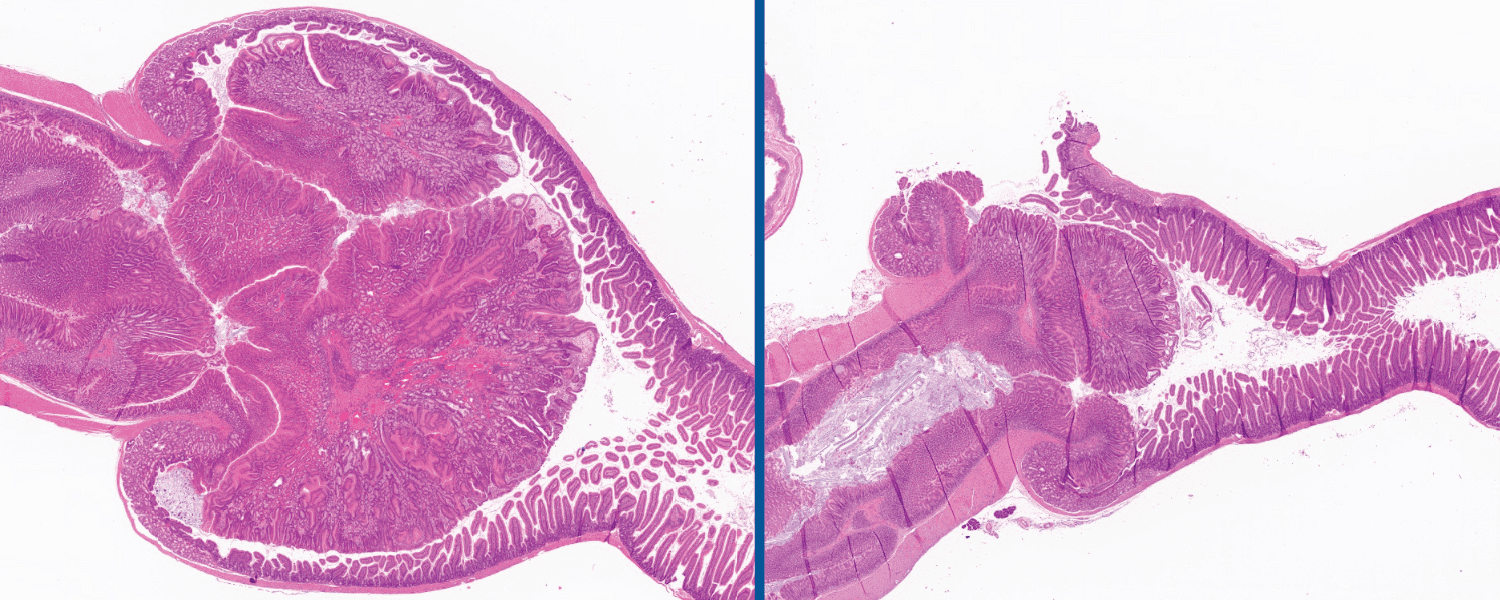Reducing inflammation may offer new path for treating Peutz-Jehgers syndrome, GI cancers
July 22, 2025

GRAND RAPIDS, Mich. (July 22, 2025) — Targeting a common inflammatory protein linked to arthritis and allergies may lead to better treatments for gastrointestinal (GI) cancers and related syndromes.
A new study by Van Andel Institute (VAI) scientists found that blocking this protein, called IL-17, reduced tumor growth in models of Peutz-Jehgers syndrome, a rare disorder that causes polyps in the GI tract. Although these polyps often are benign, people with Peutz-Jehgers have a significantly increased risk of developing cancer.
The findings published in the journal Science Advances.

“People with Peutz-Jehgers have few treatment options. Likewise, many GI cancers resist existing therapies,” said Russell Jones, Ph.D., a VAI professor and corresponding author of the study. “This work provides a much-needed path for repurposing existing anti-inflammatory medications to treat these diseases.”
Produced by certain immune cells, IL-17 spurs an inflammatory reaction that helps the body fight infection and heal injuries. Too much IL-17 prolongs inflammation beyond the point that it is needed, resulting in a chemical firestorm that damages healthy cells and promotes cancer development.
The new study is the first to link IL-17 with the activity of another protein, LKB1, in the context of GI inflammation and cancer. In addition to its role as a tumor suppressor, Jones and his team found LKB1 acts as a gatekeeper for inflammation in the GI tract. When LKB1 is damaged or lost, it allows IL-17-related inflammation to run rampant, which in turn promotes development of GI tumors.
Earlier work by Jones’ lab found that mutations in the gene that produces LKB1 derails cellular quality controls, promotes inflammation and allows cancer cells to grow unimpeded. Cancers with these mutations are difficult to treat because they resist chemotherapy and many immunotherapies.
Learn more about Dr. Jones’s research ➔
The next steps, Jones says, include searching for additional inflammatory proteins that may play roles in this process and investigating other cancers driven by LKB1 mutations, such as certain lung and pancreatic cancers. He also hopes this study will spark future clinical trials to evaluate existing anti-inflammatory medications as possible treatments for Peutz-Jehgers syndrome.
Other authors include Shelby E. Compton, Ph.D., Lisa M. DeCamp, Brandon M. Oswald, Ph.D., Susan M. Kitchen-Goosen, Kin H. Lau, Ph.D., Robert Fillinger, Ph.D. Michael S. Dahabieh, Ph.D., Alexandra Vander Ark, and Connie M. Krawczyk, Ph.D. of VAI.
Research reported in this publication was supported by Van Andel Institute.
Image caption: Peutz-Jehgers Syndrome is a rare disorder that causes polyps to grow in the GI tract. Although these polyps often are benign, people with Peutz-Jehgers have a significantly increased risk of GI cancers. New findings from the lab of VAI’s Dr. Russell Jones found that blocking IL-17, a protein linked to inflammation, may offer new opportunities to treat the disease. The image above depicts a polyp before (left) and after (right) being treated with an anti-inflammatory drug.
